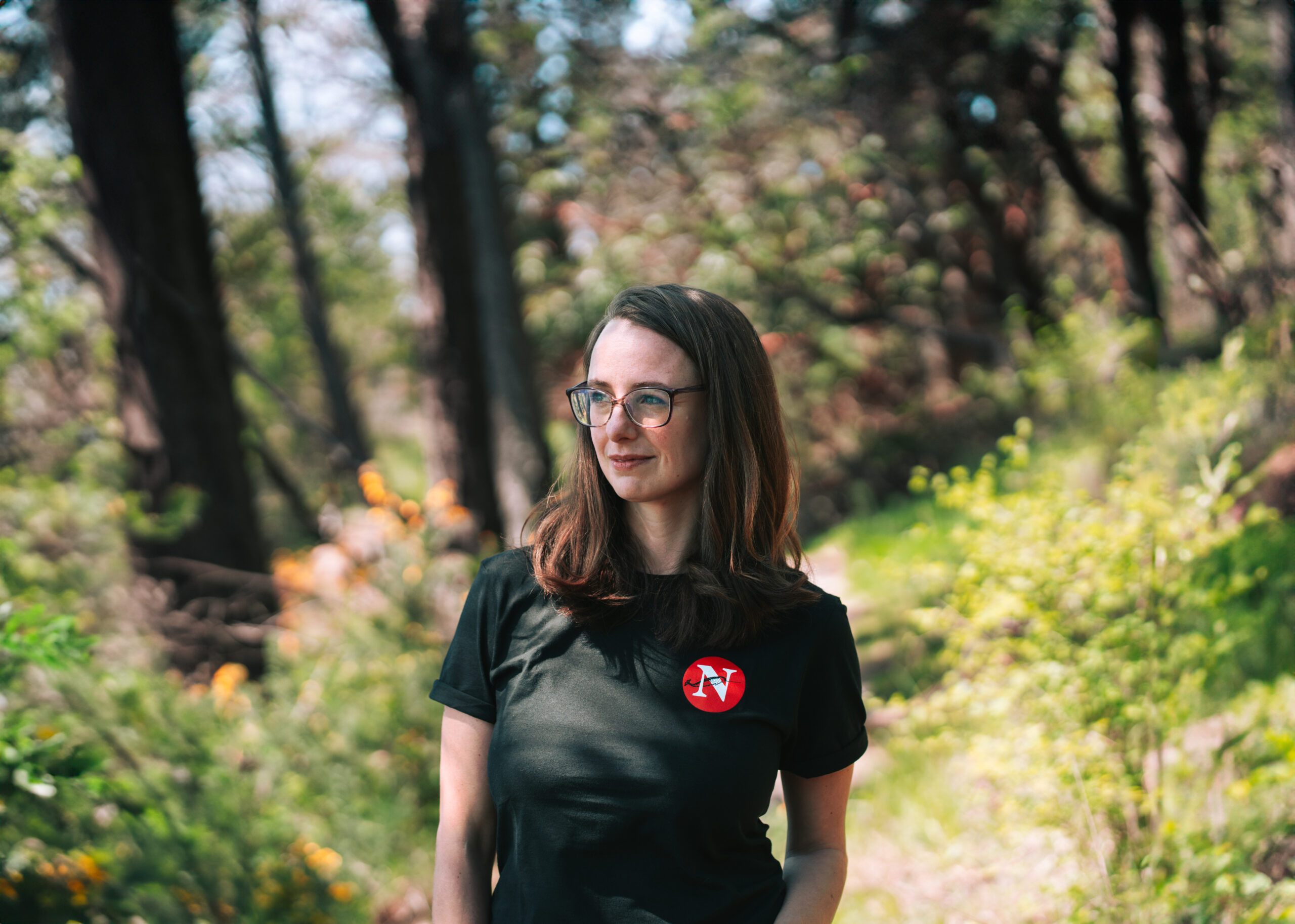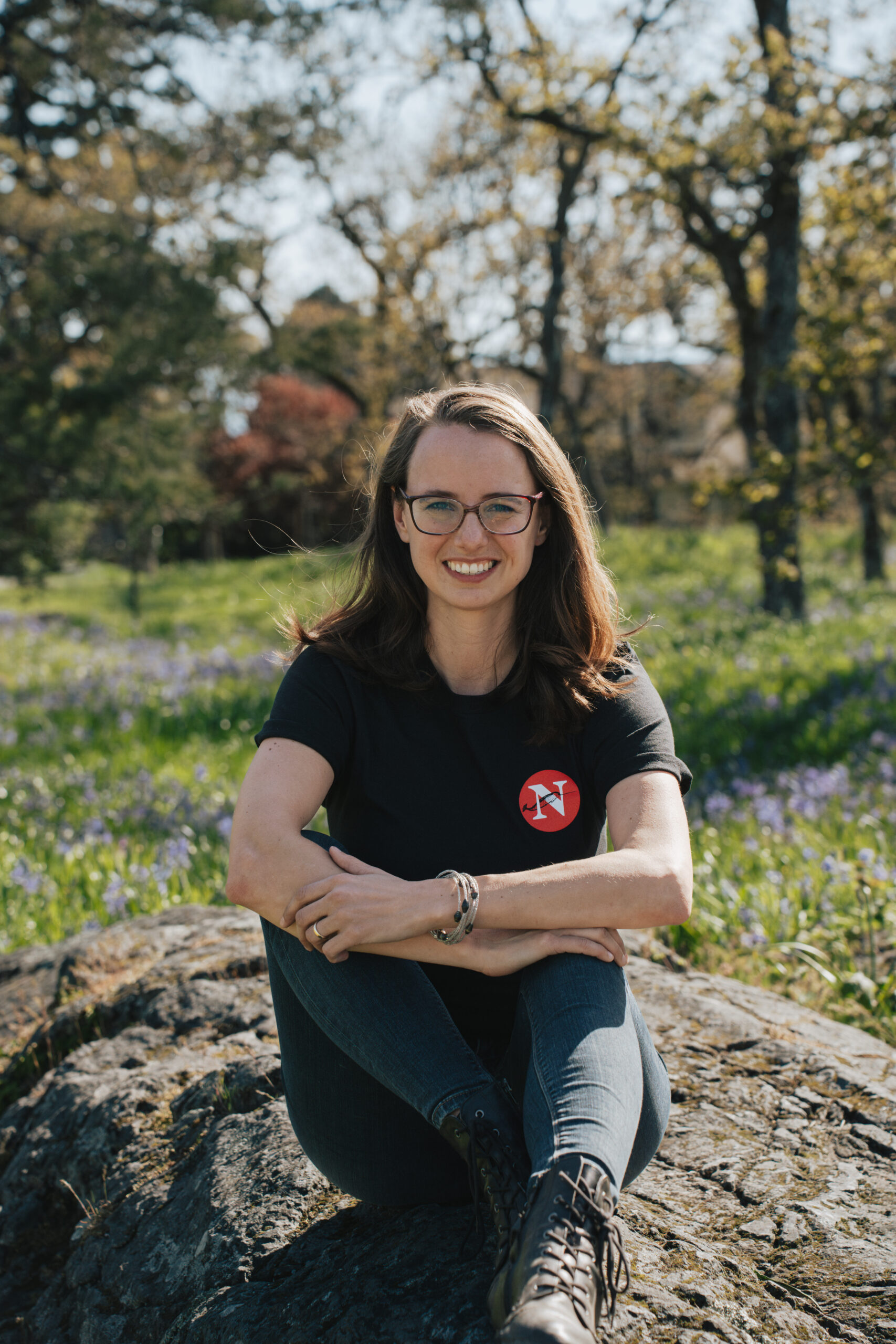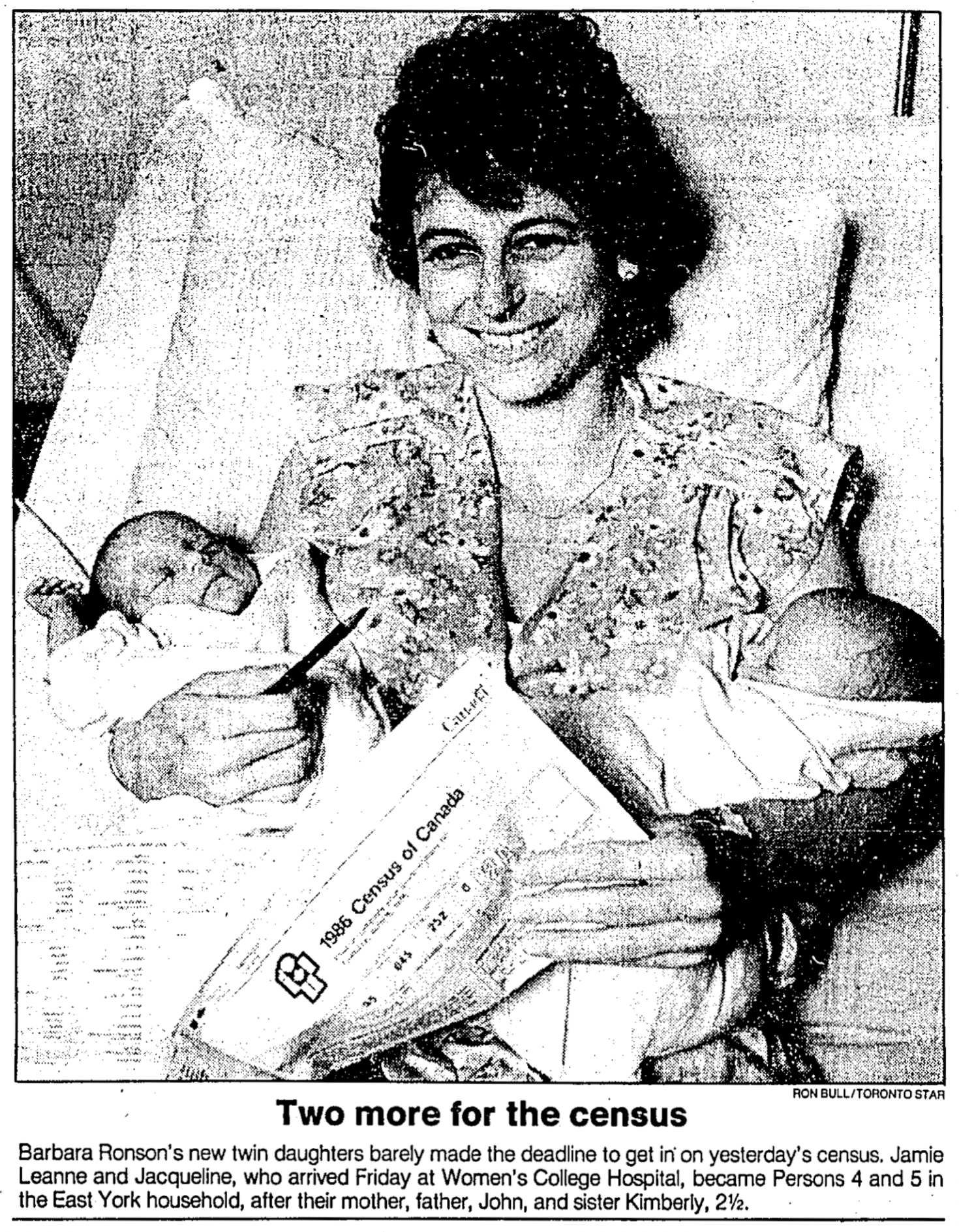
Canada’s fossil fuel companies win battle against climate transparency
Financial regulators hit pause this week on a years-long effort to force corporations to be...
There is often an elk outside Jacqueline Ronson’s home office window, keeping her company while she works. She lives in Youbou, B.C., in an area of Vancouver Island known for an abundance of the mostly friendly, but sometimes problematic — in case you missed our story on Bob the elk — ungulates.
“It’s rare that a day goes by that I don’t see elk,” Jacqueline says.
There was also that time a cougar faced her and her dog, Beyla, down. (No one was hurt!) But when she’s not racking up wildlife sightings, she’s applying her keen eye for detail to our stories.
Jacqueline has honed her skills, reporting and editing for more than a decade in both the Yukon and B.C., where she started a new local news outlet in her Cowichan Valley community. The Narwhal has already benefited from her understanding of complicated chemical processes, which may or may not be hereditary — and her crafting habit would have Crayola seeing 72 shades of green. (Most recently, she made a collection of bespoke narwhal-themed items: a magnetic poetry set, stickers and a baby onesie.)
Here are a few more things you might want to know about our new eagle-eyed editor.

I grew up in Ontario — in Toronto, specifically. My parents met at a wilderness canoe tripping camp as camp leaders. And so canoeing and being on lakes and in lakes was a big part of my childhood. We had a summer cottage that my grandparents built on an island in the Kawarthas, where I spent my summers running around the forest barefoot, which was one of my very favourite things. So that’s been a part of my life, particularly my summertime life, since my childhood. Even though I grew up in a big city, I still really appreciate and need time to be in forests, and in and on lakes. And that’s a big part of why I live where I live.
I didn’t grow up with journalism as a thought in my mind, in terms of a career. It wasn’t really until my early 20s that it even occurred to me as an option. I think what it really came down to was a real curiosity about the world and how it works, and why evidence-based policies aren’t necessarily the policies that guide our lives.
The real moment where I started thinking about journalism as a career, I was working in Toronto at a market research firm. It was just after the big financial crisis of 2008 and I started listening to journalism podcasts, sort of explaining what was happening in the world. And that sent me down a road of learning about storytelling that’s both really engaging and human — and also helps explain complicated things like science and the environment and politics and social systems. So that’s when I started thinking about being a part of that and making it my job to talk to interesting people about interesting things, and help people better understand the world.
I learned how to challenge the way we’ve been taught to practice journalism and not take for granted that these rules and standards are good just because that’s how it’s been done for decades or centuries.
To be more specific, I think the biggest lessons were around community engagement, and deeply listening to people and communities who are the most affected by an issue. You can cause a lot of harm by jumping into something before you’ve talked to the people who are living it.

Yeah, so I got to jump in with some fact-checking on a story that had to do with air pollution near a plastics facility in Ontario. And through that process, I started thinking about my grandfather, who was a plastics chemist at the University of Toronto, and just remembering really interesting things about him and his work and how it relates to my childhood.
He was very interested in environmental issues — and he was also a bit of an evangelist for plastic. He thought that plastic was very much an environmental solution in certain ways, and that the issues with plastic pollution could be solved through science and through improving plastics. The innovation that he’s best known for is a type of photodegradable plastic that will break down with exposure to sunlight.
I actually did not tree-plant for a very long time. I did a full B.C. Interior season, which is a couple of months, the summer before I went to journalism school. The following year I had a summer internship with the CBC in Whitehorse and, on my drive up from Vancouver, I tree-planted for a couple of days so I could visit my friends whose tree-planting camp was on the way. Then the summer after I graduated journalism school, I decided to go back planting to pay off some of my school debts and delay the inevitable job search.
I tree-planted for a few weeks until I got an email from one of my friends in the Yukon, who said the Yukon News newspaper desperately needed a reporter. That day, I managed to get to some cell service in town and do an interview with the editor of the Yukon News — and very quickly was offered a summer job and got on a bus to head north to the Yukon.
Though a problem arose when the Alaska Highway washed out ahead of my bus. In the end, I had to take the bus back to Prince George and then jump on a flight, which took me back to Vancouver and then to Whitehorse, so I could make it in time for my first day. My first assignment was to report on the washed out Alaska Highway, which was the biggest story of the year — and my first byline in print!
The Yukon. The Yukon Government itself changes its mind every few years on if it’s ‘the Yukon’ or ‘Yukon’ — I don’t know what the current status of that is.
One of the environment stories I covered as a reporter up there was the process to create a management plan for the Peel Watershed, which was a huge story and involved a lot of political back and forth and court cases and wrangling around whether this huge piece of land would be protected from development or left open for mining and roads and that sort of thing. I remember telling colleagues I couldn’t leave the Yukon before that whole thing settled. I didn’t exactly keep the promise, but covering that story was a highlight of my three years there.

I was in the newspaper within the first week of my life. My twin sister and I happen to have been born in the midst of a doctors’ strike in Ontario, so there were a lot of reporters in the hospital. It was also close to the census deadline, and a Toronto Star photographer somehow found my mom and took a picture of her holding the census form and both babies.
I am also a wannabe Dolly Parton impersonator.
Get the inside scoop on The Narwhal’s environment and climate reporting by signing up for our free newsletter. When I visited my reserve, Moose Factory,...
Continue reading
Financial regulators hit pause this week on a years-long effort to force corporations to be...

The Conservative and Liberal parties diverge sharply on Indigenous issues. Here’s what that could mean...

After a series of cuts to the once gold-standard legislation, the Doug Ford government is...

